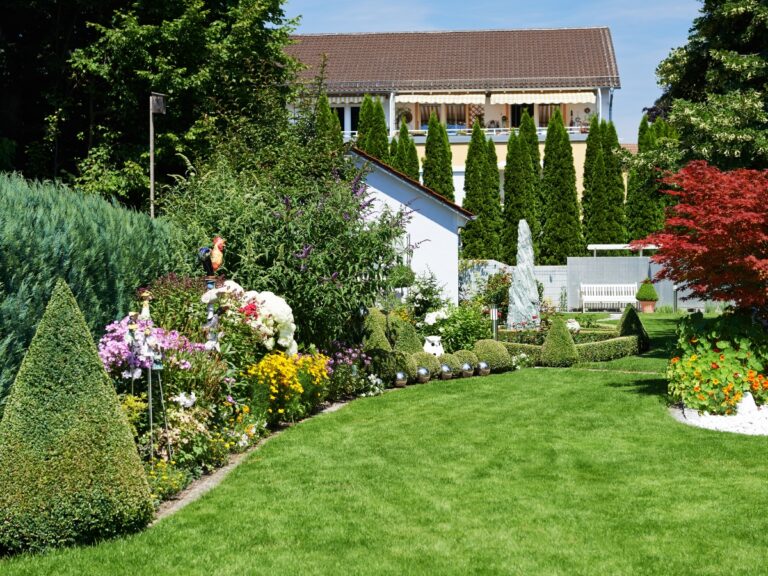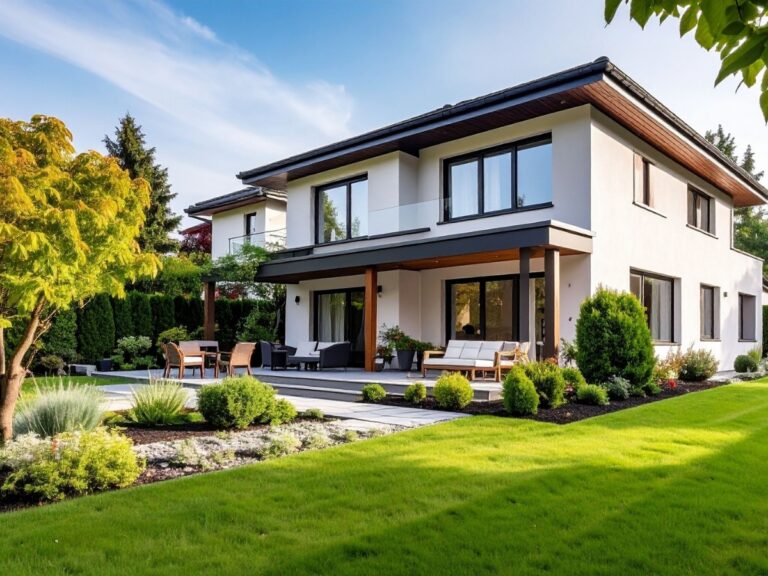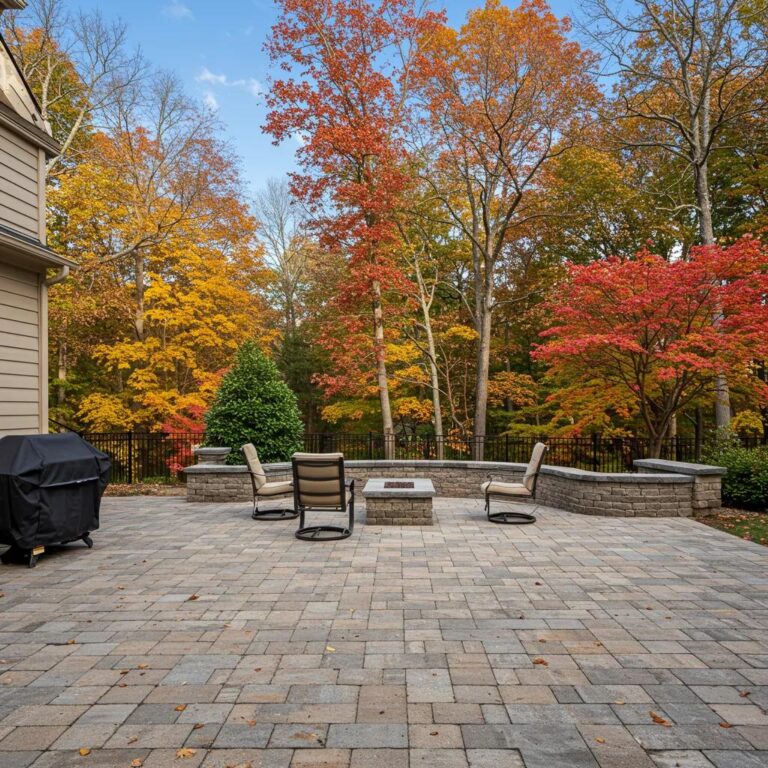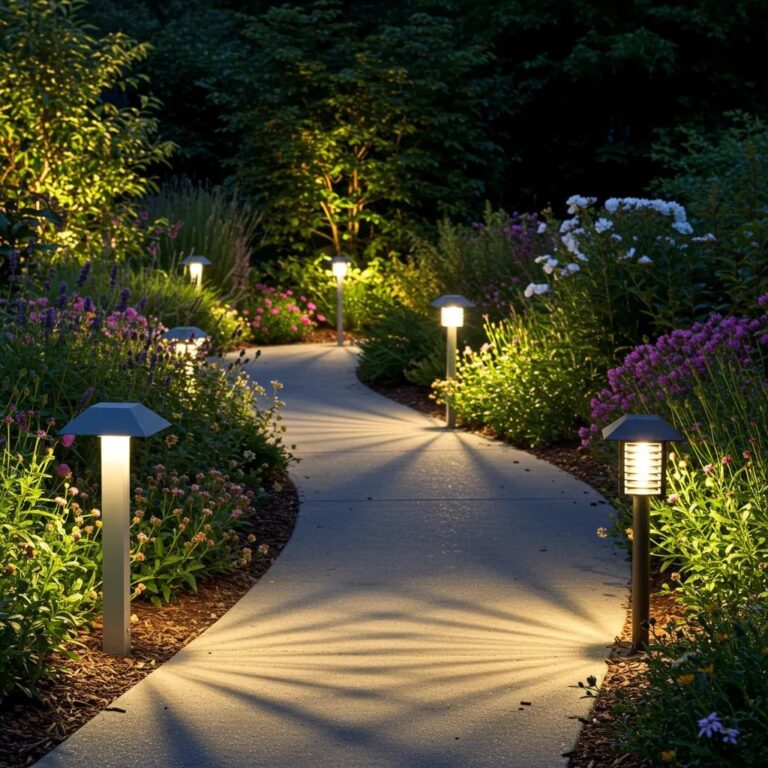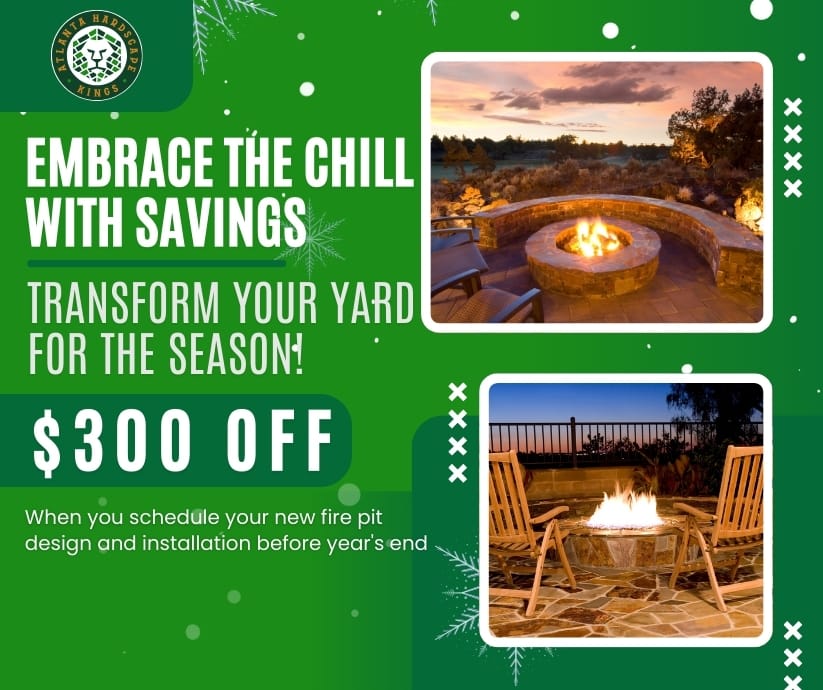Are you planning a hardscaping project in Atlanta but unsure which materials to use? Choosing the right materials is crucial for creating a beautiful, durable outdoor space that can withstand Atlanta’s climate.
This guide will help you understand local soil conditions, explore various hardscaping materials, and consider aesthetic, maintenance, and budget factors. By the end, you’ll have the knowledge to select the perfect materials for your Atlanta hardscaping project, ensuring a stunning and long-lasting result.
Discover Top Hardscaping Materials for Atlanta Spaces Today!
Understand the Climate and Soil Conditions in Atlanta
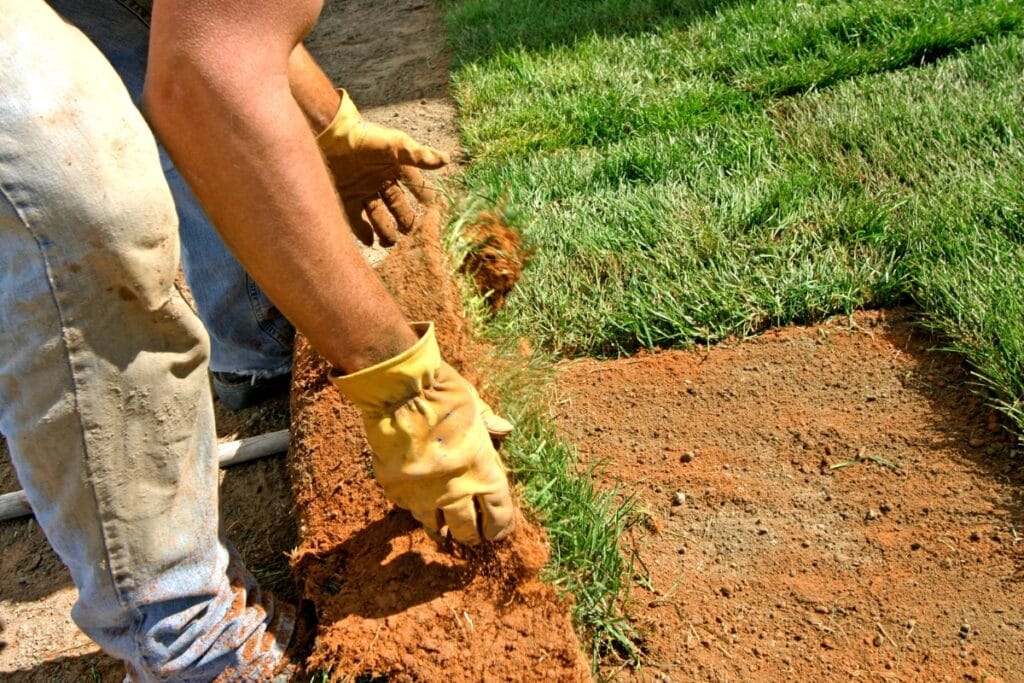
Atlanta’s unique climate and soil conditions play a crucial role in hardscaping projects. Understanding soil type, drainage, weather patterns, and local vegetation helps in selecting appropriate materials for gardens and backyards. Proper assessment ensures that hardscape rocks, limestone, and mortar withstand temperature variations and integrate seamlessly with the landscape.
Assessing Soil Type and Drainage
Assessing soil type and drainage is essential for successful hardscaping projects in Atlanta. The region’s clay-rich soil can present challenges for water absorption, impacting the stability of rock and block hardscape elements. Proper evaluation of soil composition and drainage patterns helps determine the need for additional measures, such as incorporating plastic barriers or adjusting the foundation to prevent water accumulation.
Weather conditions in Atlanta, including frequent rainfall and temperature fluctuations, further emphasize the importance of effective drainage systems. Hardscape contractors must consider these factors when designing outdoor spaces, ensuring that lighting fixtures and other elements are positioned to withstand varying moisture levels. By addressing soil and drainage concerns early in the project, hardscape professionals can create durable and visually appealing outdoor environments across their service areas.
Evaluating Weather Patterns and Temperature Variations
Atlanta’s weather patterns and temperature variations significantly impact hardscaping projects. Bluestone, a popular hardscape material, responds differently to heat and cold, affecting its longevity in outdoor spaces. Contractors must consider these factors when designing yards to ensure the chosen materials withstand local climate conditions and fit within the client’s budget.
Seasonal changes in Atlanta can lead to mold growth on hardscape surfaces, particularly in shaded areas. To combat this issue, professionals recommend selecting materials with natural mold-resistant properties or applying protective sealants. This approach helps maintain the aesthetic appeal of the hardscape while reducing long-term maintenance costs:
| Season | Temperature Range | Hardscaping Considerations |
|---|---|---|
| Summer | 80-90°F | Heat-resistant materials, shade structures |
| Winter | 30-50°F | Freeze-thaw resistant materials, proper drainage |
| Spring/Fall | 60-75°F | Versatile materials, mold prevention |
Considering Local Vegetation and Landscape
Atlanta’s landscape boasts a diverse array of native plants and trees that can complement hardscaping projects. When designing outdoor spaces, contractors consider how elements like fountains, fences, and decks interact with existing vegetation. This approach ensures that hardscape features enhance the natural beauty of the surrounding environment while providing functional outdoor living areas.
Incorporating local flora into hardscape designs can create stunning visual contrasts. For instance, pairing granite pavers with native flowering plants can add vibrant color and texture to a patio or walkway. By thoughtfully integrating hardscape materials with the existing landscape, contractors can create harmonious outdoor spaces that seamlessly blend natural and man-made elements.
Explore Different Hardscaping Materials
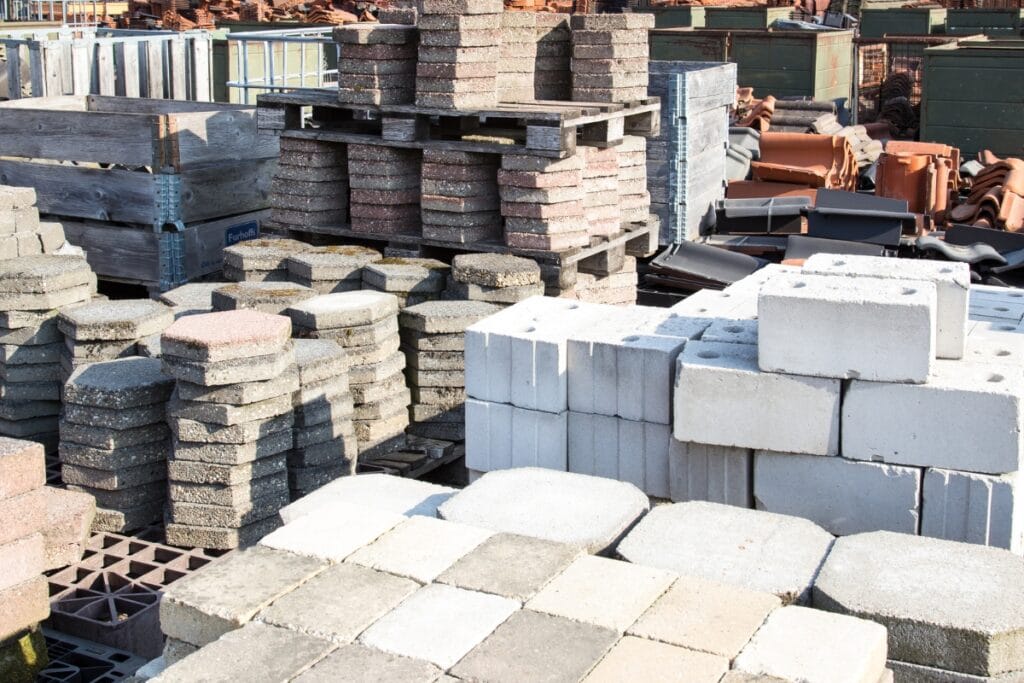
Selecting the right materials is crucial for successful hardscaping projects in Atlanta. This section explores various options, including concrete‘s versatility, natural stone’s durability, the pros and cons of hardscapepavers, brick‘s benefits, and composite materials. Understanding each material’s properties, such as porosity and durability, helps in creating stunning outdoor spaces like gazebos while considering factors like irrigation and climate.
Concrete and Its Versatility
Concrete‘s versatility makes it a popular choice for Atlanta hardscaping projects. Its adaptability allows for various finishes, colors, and textures, complementing both modern and traditional gardenfurniture designs. Contractors can moldconcrete into custom shapes, creating unique features like tree surrounds or gravel-textured pathways that blend seamlessly with the landscape.
The durability of concrete withstands Atlanta’s climate, making it ideal for long-lasting outdoor structures. From patios to retaining walls, concrete provides a sturdy foundation for hardscape elements. Its ability to mimic natural materials like wood or stone offers creative possibilities for Instagram-worthy outdoor spaces. When properly sealed, concrete resists staining and weathering, ensuring a low-maintenance solution for homeowners:
- Versatile application in various hardscape features
- Customizable textures and colors
- Durable in Atlanta’s climate
- Low-maintenance when properly sealed
- Cost-effective compared to some natural materials
The Durability and Beauty of Natural Stone
Natural stone hardscaping materials offer unparalleled durability and beauty for Atlanta outdoor spaces. These materials, including granite, limestone, and slate, withstand harsh weather conditions while adding a timeless elegance to pavilions, patios, and walkways. The rich colors and textures of natural stone complement lush lawns and create stunning visual contrasts in landscaping designs.
Homeowners appreciate the versatility of natural stone in creating functional and aesthetic outdoor living areas. From building sturdy retaining walls to crafting elegant roof tiles for covered spaces, natural stone provides endless possibilities for hardscape projects. Its ability to blend seamlessly with existing architecture and natural surroundings makes it a popular choice for creating cohesive outdoor environments:
- Enhances curb appeal and property value
- Requires minimal maintenance over time
- Offers a wide range of colors and textures
- Provides excellent heat resistance for summer comfort
- Creates natural drainage solutions in landscaping
Pros and Cons of Pavers
Pavers offer versatility in hardscapedesign, allowing homeowners to create stunning driveways and patios that complement their landscapelighting. These interlocking units come in various shapes, colors, and materials, providing endless design possibilities. Pavers also excel in water management, reducing the risk of water damage by allowing rainwater to seep between the joints.
While pavers enhance curb appeal, they require periodic maintenance to prevent weed growth and shifting. Proper installation is crucial to avoid unevenness, especially in areas with artificial turf. Despite these considerations, pavers remain a popular choice for Atlanta hardscaping projects due to their durability and aesthetic appeal:
- Versatile design options for driveways and patios
- Excellent waterdrainage properties
- Durable and long-lasting
- Requires periodic maintenance
- Installation expertise needed for best results
Benefits of Using Brick
Brick offers exceptional durability and versatility for Atlanta hardscaping projects, making it an ideal choice for various elements, including pergolas and flower beds. Its natural earth-toned colors complement the surrounding landscape, while its uniform shape allows for precise installation and creative patterns. Brick‘s porous nature helps manage soil moisture, promoting healthy plant growth in garden areas.
Homeowners appreciate brick‘s low maintenance requirements and ability to withstand Atlanta’s climate fluctuations. Whether used for pathways, retaining walls, or decorative borders, brick adds timeless charm to outdoor spaces. Its thermal mass properties help regulate temperature, creating comfortable seating areas around fire pits or outdoor kitchens.
Selecting the Right Composite Materials
Composite materials offer durability and low maintenance for Atlanta hardscaping projects, making them ideal for swimming pool decks and concrete slab alternatives. These materials resist moisture, preventing drainage issues and creating a long-lasting oasis around water features. Homeowners appreciate composites for their ability to mimic natural wood or stone while providing superior weather resistance.
When selecting composite materials for hardscaping, contractors consider factors such as UV resistance, slip resistance, and compatibility with existing landscape elements. These materials excel in creating seamless transitions between indoor and outdoor living spaces, offering a consistent floor surface that withstands heavy foot traffic and outdoor furniture. Composite decking and pavers provide a cost-effective solution for creating stylish, low-maintenance outdoor areas that enhance property value.
Evaluate Aesthetic Considerations for Your Project
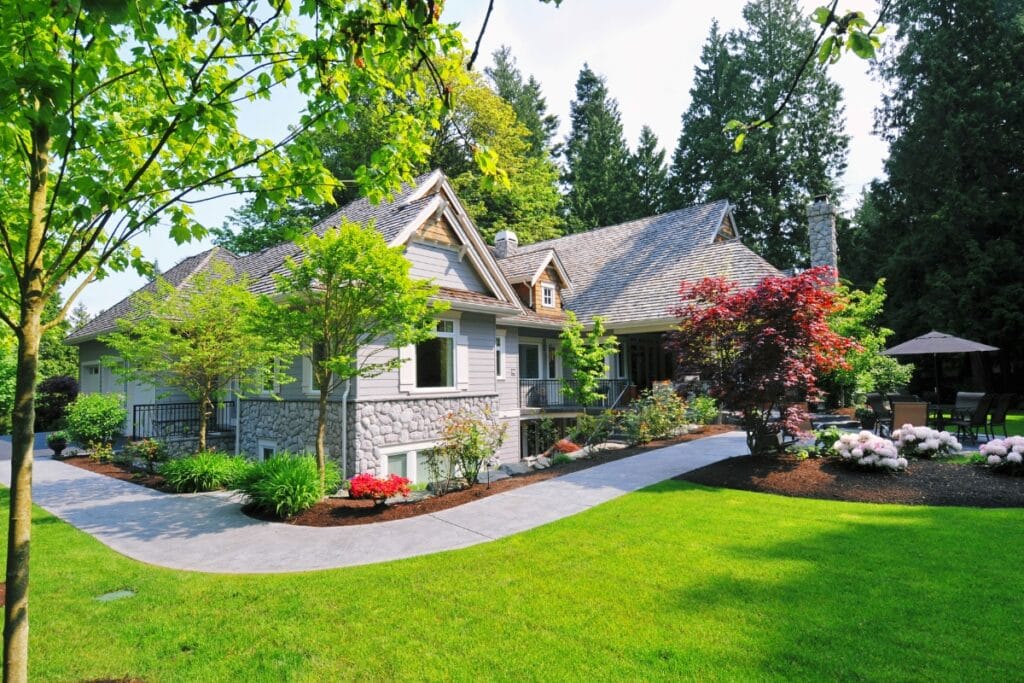
When evaluating aesthetic considerations for Atlanta hardscaping projects, homeowners must focus on matching materials with their home’s architecture, coordinating colors and textures, and creating visual interest through patterns. From fire pits to patios, thoughtful design choices ensure a cohesive and appealing outdoor space.
Matching Hardscaping Materials With Your Home’s Architecture
When selecting hardscaping materials for Atlanta homes, contractors consider the existing architecture to create a harmonious outdoor space. Metal elements, such as wrought iron fences or steel pergolas, complement modern designs, while natural rock features enhance traditional or rustic styles. The goal is to blend hardscape elements seamlessly with the home’s exterior, creating a cohesive look that enhances curb appeal.
Homeowners can incorporate tile accents in patios or walkways to mirror architectural details from their house, tying the outdoor space to the overall design. Sand-colored pavers or concrete finishes work well with Mediterranean-inspired homes, while darker stone matches Tudor or Colonial styles.
Color and Texture Coordination
Color and texture coordination plays a crucial role in creating visually appealing hardscaping projects in Atlanta. Homeowners can enhance their outdoor spaces by selecting stamped concrete patterns that complement the color of their house or existing landscape features. For instance, a sandstone-hued patio can create a harmonious look when paired with warm-toned furniture and a tranquil pond.
Texture adds depth and interest to hardscaping elements, contributing to the overall aesthetic appeal and durability of the project. Combining smooth and rough textures, such as polished granite countertops with textured pavers, creates a dynamic visual contrast in outdoor kitchens or seating areas. This thoughtful coordination of colors and textures ensures a cohesive and inviting outdoor environment:
- Match hardscape colors with existing architectural elements
- Incorporate texture variations for visual interest
- Consider the impact of sunlight on material colors
- Use complementary colors to create focal points
- Balance warm and cool tones for a harmonious look
Creating Visual Interest With Patterns
Hardscape designs incorporating patterns create visual interest in Atlanta outdoor spaces. Skilled contractors use hardscape stone to craft intricate walkway designs, combining different shapes and colors of flagstone to form eye-catching paths. These patterns not only enhance the aesthetic appeal but also guide foot traffic through the landscape, connecting various outdoor living areas seamlessly.
Homeowners can explore a variety of pattern options to suit their style preferences and complement existing architecture. From herringbone brick layouts to circular paver designs, patterns add depth and character to patios, driveways, and pool decks.
| Pattern Type | Suitable Materials | Best Applications |
|---|---|---|
| Herringbone | Brick, Pavers | Driveways, Patios |
| Circular | Flagstone, Concrete | Focal Points, Entryways |
| Basketweave | Brick, Tile | Walkways, Courtyards |
Factor in Maintenance and Longevity
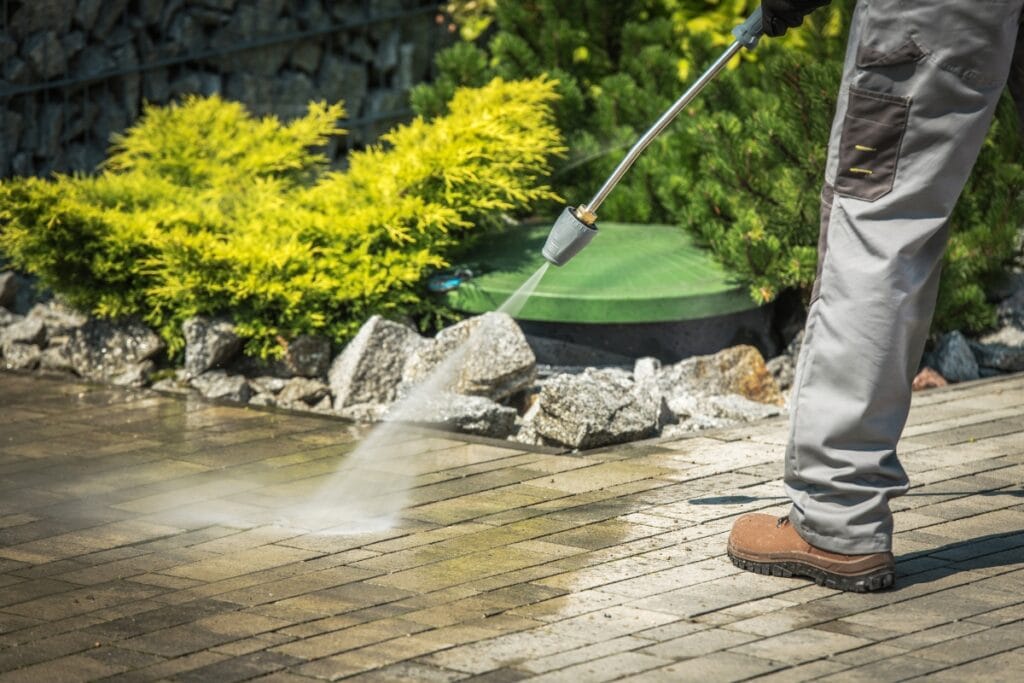
When selecting hardscaping materials for Atlanta projects, considering maintenance and longevity is crucial. This section compares upkeep requirements for various options, explores product lifespans, and examines eco-friendly choices like porcelain. Understanding these factors helps homeowners create durable outdoor spaces that complement the natural environment while minimizing long-term maintenance needs.
Comparing Maintenance Requirements for Various Materials
Hardscaping materials in Atlanta require varying levels of maintenance to ensure longevity and aesthetic appeal. Crushed stone and riverrock, often used in garden beds and pathways, demand minimal upkeep beyond occasional raking and weed control. In contrast, keystone hardscapes pavers may need periodic cleaning and re-sanding of joints to maintain their structural integrity and prevent weed growth.
Organic materials like compost, while beneficial for plant growth, decompose over time and require regular replenishment. Homeowners should consider incorporating low-maintenance plants alongside hardscape elements to create a balanced, sustainable outdoor environment. By carefully selecting materials and understanding their maintenance needs, Atlanta residents can design outdoor spaces that remain beautiful with minimal effort.
Understanding the Lifespan of Hardscaping Products
Hardscaping products in Atlanta vary in lifespan, with properly installed pavers and hardscape blocks often lasting decades. Homeowners can extend the life of their patio and other hardscape features through regular maintenance services, ensuring their outdoor dream space remains beautiful for years to come.
Natural stone elements typically outlast manufactured materials, with some lasting a lifetime when properly cared for. Homeowners should consider the long-term value of their hardscaping investments, balancing initial costs with the durability and longevity of chosen materials to create enduring outdoor spaces that fulfill their dreams.
Eco-Friendly Options and Their Sustainability
Eco-friendly hardscaping options in Atlanta offer both sustainability and longevity, appealing to homeowners seeking environmentally conscious solutions. Permeable pavers, for instance, allow water to seep through, reducing runoff and promoting natural turf management. These materials, often available at home improvement stores like Home Depot, combine beauty with functionality, creating visually appealing outdoor spaces that support local ecosystems.
Recycled materials, such as crushed concrete or reclaimed wood, provide sustainable alternatives to traditional hardscaping elements. These options not only reduce waste but also offer unique aesthetic qualities, enhancing the beauty of outdoor areas. By incorporating eco-friendly materials, Atlanta homeowners can create durable, low-maintenance landscapes that minimize environmental impact while maximizing the longevity of their outdoor investments.
Money talks when it comes to hardscaping. Let’s see how your budget shapes your outdoor dreams.
Assess Budget Considerations

When assessing budget considerations for Atlanta hardscaping projects, homeowners must carefully evaluate material costs, long-term value, and installation expenses. From stamped concrete to ceramic tiles for outdoor kitchens, each choice impacts the overall budget. Understanding the cost implications of different materials, such as mulch for erosion control, helps in making informed decisions that balance aesthetics, functionality, and financial constraints.
Breaking Down Material Costs
When assessing material costs for Atlanta hardscaping projects, homeowners must consider the expenses associated with various elements such as retaining walls and foundations. The cost of materials can significantly impact the overall budget, influencing decisions on project scope and design. Contractors evaluate factors like durability, aesthetics, and functionality when recommending materials for construction.
Balancing hardscape and softscape elements is crucial for creating a cohesive outdoor space while managing costs. Homeowners can explore cost-effective alternatives that maintain desired aesthetics without compromising quality. By carefully analyzing material costs, Atlanta residents can make informed decisions that align with their budget and vision.
Long-Term Value vs. Initial Investment
When considering hardscaping materials for Atlanta projects, homeowners must weigh the long-term value against initial investment. Materials like slate offer durability in the region’s climate, potentially outlasting cheaper alternatives and reducing replacement costs over time. Landscapedesign professionals often recommend investing in high-quality materials for elements such as retaining walls for paver patios, as these structures play crucial roles in maintaining the integrity of outdoor spaces.
Clay-based soils common in Atlanta can impact hardscapelongevity, making material selection critical for long-term success. While premium materials may have higher upfront costs, they often provide superior performance in challenging soil conditions. Homeowners should consider how different hardscaping choices will withstand local weather patterns and soil characteristics, ensuring their investment yields lasting value and minimizes future maintenance expenses.
Planning for Installation Expenses
When planning for installation expenses in Atlanta hardscaping projects, homeowners must consider labor costs, equipment rentals, and site preparation. Decomposed granite, a popular material for pathways and landscaping, requires proper installation techniques to ensure longevity. Contractors factor in the time and expertise needed to lay a solid foundation, compact the material, and create proper drainage to prevent erosion.
Homeowners should request detailed quotes from hardscaping professionals, breaking down material and labor costs separately. This transparency helps in budgeting for unexpected expenses and allows for informed decisions on material choices. For instance, while decomposed granite may have a lower initial cost, its installation can be labor-intensive, potentially increasing overall project expenses.
With the budget set, it’s time to tap into local expertise. Smart builders know where to find the best materials at fair prices.
Utilize Expert Resources and Local Suppliers
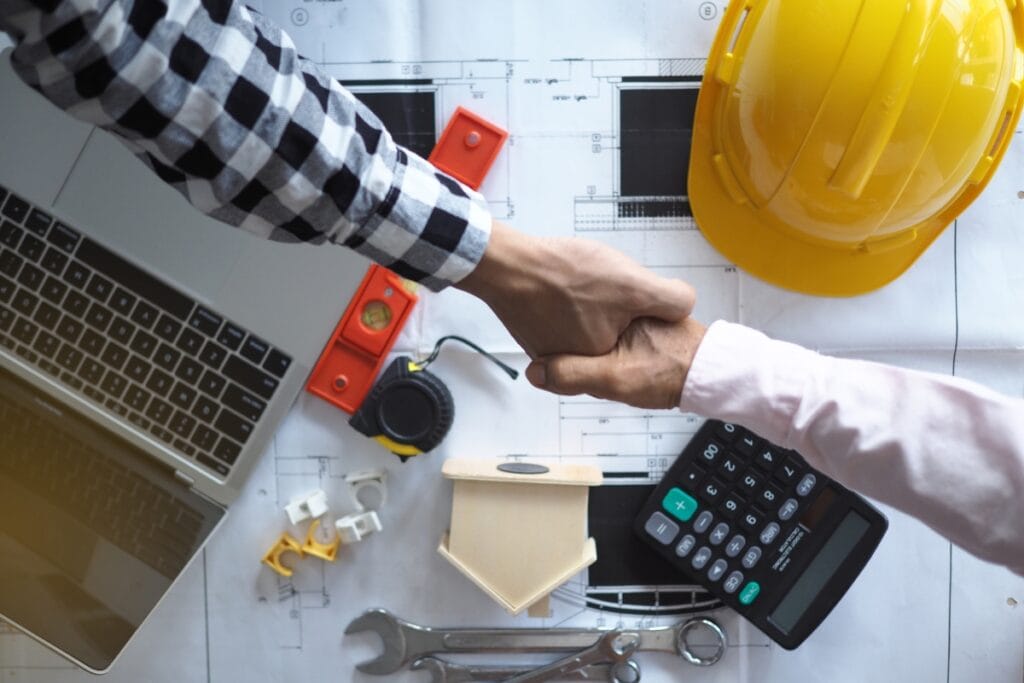
Selecting the right hardscaping materials in Atlanta requires tapping into expert resources and local suppliers. This section explores finding reliable suppliers, consulting with landscape designers, and reviewing customer feedback. By leveraging these resources, homeowners can make informed decisions, ensuring their hardscaping projects align with their vision and budget while meeting Atlanta’s unique climate and soil conditions.
Finding Reliable Hardscaping Suppliers in Atlanta
Atlanta homeowners can find reliable hardscaping suppliers by researching local businesses with established reputations. These suppliers often stock a wide range of materials, from natural stone to pavers, catering to various project needs. Visiting showrooms allows customers to see and feel materials firsthand, helping them make informed decisions for their outdoor spaces.
Reputable suppliers in Atlanta offer expert advice on material selection, considering factors like climate resilience and maintenance requirements. They can provide valuable insights into how different materials perform in local conditions, ensuring long-lasting and visually appealing hardscaping results. When choosing a supplier, homeowners should consider factors such as product quality, delivery options, and customer support:
| Supplier Criteria | Importance | Benefits |
|---|---|---|
| Product Range | High | Diverse options for project needs |
| Expert Advice | Medium | Informed decision-making |
| Delivery Services | Medium | Convenient material transport |
| Customer Support | High | Assistance throughout the project |
Consulting With Landscape Designers
Landscape designers in Atlanta offer valuable expertise when selecting hardscaping materials for outdoor projects. These professionals assess the property’s unique characteristics, considering factors such as soil type, drainage, and existing vegetation to recommend suitable materials. Their knowledge of local climate conditions ensures that chosen hardscaping elements withstand Atlanta’s weather patterns while complementing the overall landscapedesign.
By consulting with landscape designers, homeowners gain access to innovative design ideas and material combinations that enhance their outdoor spaces. These experts can provide insights into emerging trends in hardscaping, such as sustainable materials or water-efficient designs, helping clients create visually appealing and functional outdoor areas. Landscape designers also assist in balancing aesthetic preferences with practical considerations, ensuring that the selected hardscaping materials align with the project’s budget and long-term maintenance requirements.
Reviewing Customer Feedback and Recommendations
Atlanta homeowners benefit from reviewing customer feedback and recommendations when selecting hardscaping materials. Online platforms and social media groups dedicated to local landscaping provide valuable insights into product quality, durability, and aesthetic appeal. By examining real-world experiences, homeowners can make informed decisions about materials that withstand Atlanta’s climate and soil conditions.
Seeking recommendations from neighbors or local community forums often yields practical advice on selecting hardscaping materials suitable for specific areas of Atlanta. These firsthand accounts can highlight potential challenges or advantages of certain materials, helping homeowners avoid costly mistakes and choose options that enhance their property’s value. Customer feedback also sheds light on the performance of local suppliers and contractors, guiding homeowners toward reliable partners for their hardscaping projects:
- Research online reviews for local hardscaping suppliers
- Consult neighborhood forums for material recommendations
- Examine before-and-after photos shared by satisfied customers
- Consider feedback on material durability in Atlanta’s climate
- Evaluate supplier responsiveness and customer service ratings
Explore Innovative Hardscaping Trends
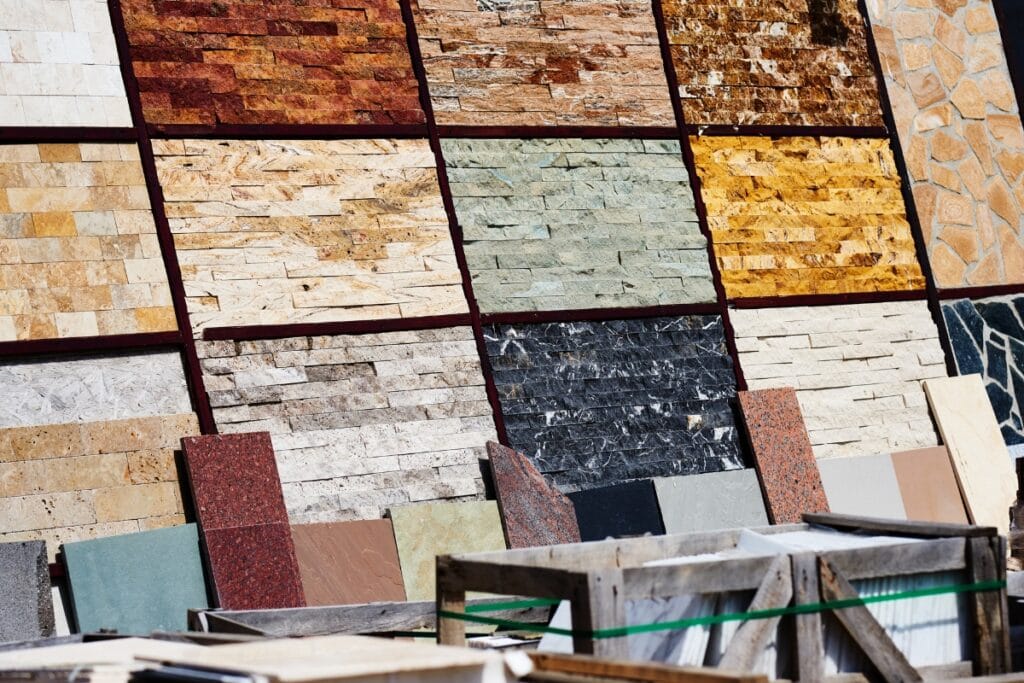
Innovative hardscaping trends in Atlanta focus on sustainability, functionality, and aesthetics. This section explores eco-friendly practices, permeable materials that improve drainage, and cutting-edge technology in hardscapedesign. By understanding these trends, homeowners can create modern, efficient outdoor spaces that enhance their property’s value and appeal while addressing environmental concerns.
Incorporating Sustainable Practices
Atlanta homeowners are increasingly embracing sustainable hardscaping practices to reduce environmental impact and enhance property value. Recycled materials, such as crushed concrete and reclaimed wood, are gaining popularity for creating eco-friendly patios and retaining walls. These options not only minimize waste but also add unique character to outdoor spaces while supporting local recycling initiatives.
Water conservation is another key focus in sustainable hardscaping trends. Atlanta contractors are incorporating rainwater harvesting systems and bioswales into landscape designs, allowing homeowners to capture and reuse rainwater for irrigation. These innovative solutions help reduce water consumption and manage stormwater runoff, addressing both environmental concerns and local water regulations.
Understanding Permeable Hardscaping Materials
Permeable hardscaping materials are gaining popularity in Atlanta due to their ability to manage stormwater runoff effectively. These innovative materials, such as porous concrete and permeable pavers, allow water to seep through the surface and into the ground below, reducing the strain on local drainage systems. Homeowners who incorporate these materials into their outdoor spaces can contribute to improved water quality and reduced flooding risks in their neighborhoods.
Atlanta Hardscape Kings offers a variety of permeable hardscaping options that combine functionality with aesthetic appeal. From driveways to patios, these materials come in diverse colors and patterns, allowing homeowners to create visually striking outdoor areas while addressing environmental concerns. The use of permeable materials often aligns with local regulations and may qualify for incentives, making them an attractive choice for eco-conscious property owners in the Atlanta area.
Technology in HardscapeDesign
Advanced technology is revolutionizing hardscapedesign in Atlanta, offering homeowners innovative solutions for their outdoor spaces. 3D visualization software allows clients to see realistic renderings of their proposed hardscaping projects before construction begins, ensuring satisfaction with the final result. This technology enables precise planning and helps homeowners make informed decisions about material selection and layout.
Smart lighting systems integrated into hardscaping elements enhance both functionality and aesthetics in Atlanta’s outdoor living areas. Programmable LED fixtures can be controlled via smartphone apps, allowing homeowners to adjust ambiance and security settings with ease. These tech-savvy additions not only improve the usability of outdoor spaces but also contribute to energy efficiency, aligning with Atlanta’s growing focus on sustainable living practices.
Planning Your Hardscaping Layout
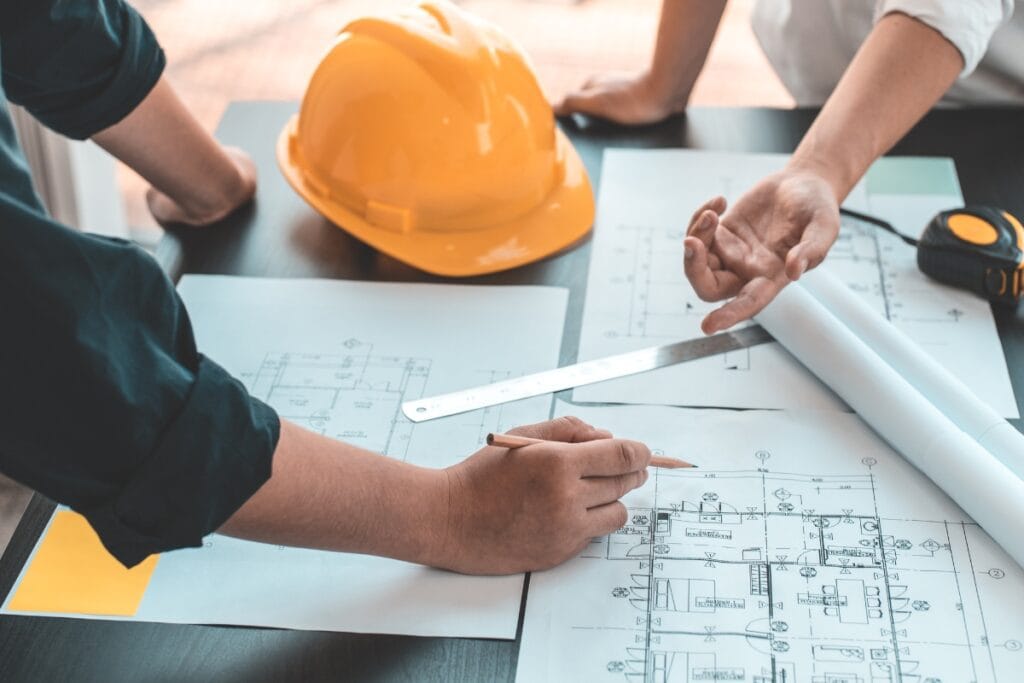
Effective hardscaping layout planning is crucial for creating successful outdoor spaces in Atlanta. This section explores strategies for designing functional areas that maximize usability, incorporating natural elements to enhance aesthetics, and ensuring accessibility and flow throughout the landscape. By addressing these key aspects, homeowners can create inviting and practical outdoor environments that complement their property and lifestyle.
Creating Functional Outdoor Spaces
Creating functional outdoor spaces in Atlanta requires careful consideration of hardscaping materials and layout. Homeowners should prioritize versatile areas that serve multiple purposes, such as combining a patio with an outdoor kitchen or integrating a fire pit within a seating area. By strategically placing these elements, property owners can maximize usability and create inviting spaces for entertaining and relaxation.
When planning the layout, it’s essential to consider traffic flow and accessibility. Hardscaping materials like pavers or stamped concrete can define pathways and transition areas, guiding movement through the outdoor space. Atlanta Hardscape Kings recommends incorporating ample seating options and shade structures to enhance comfort during Georgia’s warm summers:
| Functional Area | Recommended Materials | Key Features |
|---|---|---|
| Outdoor Kitchen | Natural stone, Concrete pavers | Heat-resistant surfaces, Built-in appliances |
| Fire Pit Area | Brick, Flagstone | Circular design, Comfortable seating |
| Patio | Stamped concrete, Travertine | Non-slip surface, Shade structure |
Incorporating Natural Elements
Incorporating natural elements into Atlanta hardscaping projects enhances the overall aesthetic and creates a seamless transition between built structures and the surrounding landscape. Homeowners can integrate native plants, rock gardens, and water features to complement hardscape materials like pavers or natural stone. This approach not only adds visual interest but also supports local ecosystems and reduces maintenance requirements.
Atlanta Hardscape Kings recommends using locally sourced materials that blend with the region’s natural environment. For example, incorporating Georgia granite into retaining walls or walkways creates a cohesive look that ties the hardscape to the local landscape. Thoughtful placement of these elements can create focal points and define outdoor spaces while maintaining a natural, organic feel:
- Use native plants to soften hardscape edges
- Incorporate boulder accents for a natural, rugged look
- Install water features to add sound and movement
- Create raised planting beds with natural stone borders
- Design curved pathways to mimic natural contours
Designing for Accessibility and Flow
Designing for accessibility and flow in Atlanta hardscaping projects ensures that outdoor spaces are usable for all family members and guests. Contractors carefully plan pathway widths and surface textures to accommodate mobility aids, while considering gentle slopes and strategically placed handrails for safer navigation. These thoughtful design elements create inclusive outdoor environments that enhance property value and functionality.
Seamless transitions between different hardscaping materials and areas promote a natural flow throughout the landscape. Atlanta Hardscape Kings recommends using consistent color palettes and complementary textures to guide visitors through the space intuitively. By incorporating clear sight lines and focal points, homeowners can create inviting outdoor areas that encourage exploration and enjoyment:
| Design Element | Accessibility Feature | Flow Enhancement |
|---|---|---|
| Pathways | Non-slip surfaces, 36″ minimum width | Curved designs, uniform material |
| Transitions | Gradual slopes, contrasting borders | Consistent color schemes |
| Lighting | Path illumination, step markers | Focal point highlights |
Preparing for Installation
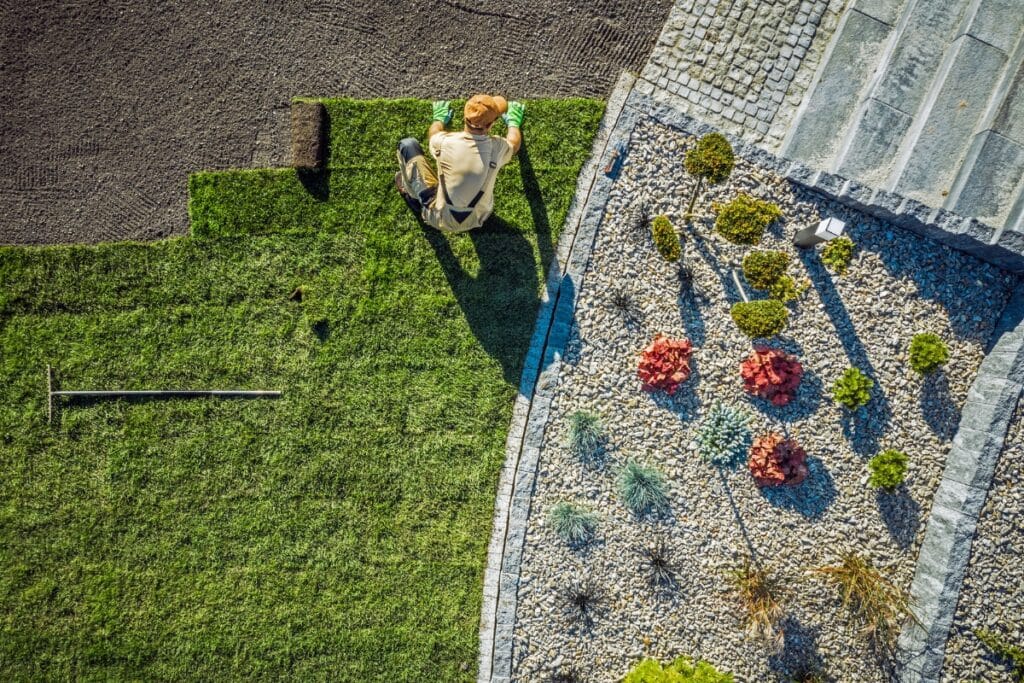
Preparing for installation is a crucial step in Atlanta hardscaping projects. This section explores installation techniques for various materials, essential equipment and tools, and project timeline planning. Understanding these aspects helps homeowners and contractors ensure smooth execution, from selecting the right materials to completing the project efficiently. Proper preparation sets the foundation for a successful hardscaping endeavor.
Understanding Installation Techniques for Various Materials
Understanding installation techniques for various hardscaping materials is crucial for successful projects in Atlanta. Proper installation of pavers requires a well-prepared base, precise leveling, and appropriate joint filling to ensure longevity and stability. Natural stone installations often involve more intricate cutting and fitting processes, demanding skilled craftsmanship to achieve a seamless look.
Concrete installations, whether poured or stamped, require careful attention to curing times and weather conditions to prevent cracking and ensure proper strength. For retaining walls, contractors must consider soil pressure and drainage requirements, often incorporating geotextile fabrics and backfill materials to enhance stability. Atlanta Hardscape Kings employs specialized techniques for each material, ensuring optimal performance and aesthetic appeal in the region’s unique climate.
Gathering Necessary Equipment and Tools
Gathering the necessary equipment and tools is crucial for successful hardscaping projects in Atlanta. Contractors require a range of items, from basic hand tools like shovels and levels to specialized machinery such as plate compactors and concrete mixers.
Homeowners planning DIY hardscaping projects should invest in essential tools like rubber mallets, string lines, and safety gear. For more complex installations involving retaining walls or large paver areas, renting professional-grade equipment can improve efficiency and results. Proper tool selection and preparation contribute significantly to the overall quality and longevity of hardscaping projects in Atlanta’s unique climate.
Setting a Realistic Timeline for Your Project
Setting a realistic timeline for Atlanta hardscaping projects involves careful planning and consideration of various factors. Homeowners should account for material delivery times, weather conditions, and potential unforeseen challenges when establishing project milestones. It is recommended that you allocate extra time for complex installations, such as custom water features or intricate paver designs, to ensure quality results.
Contractors typically break down hardscaping projects into phases, including site preparation, material installation, and finishing touches. For larger projects, homeowners can expect timelines ranging from several weeks to a few months, depending on the scope and complexity of the work. Regular communication between clients and contractors helps manage expectations and keeps projects on track, ensuring timely completion of beautiful outdoor spaces in Atlanta.
Frequently Asked Questions
How does Atlanta’s climate affect the choice of hardscaping materials?
Atlanta’s hot summers and mild winters influence hardscaping material choices. Durable materials like concrete, natural stone, and brick withstand temperature fluctuations and occasional freezing. Proper drainage is crucial to prevent water damage, while heat-resistant options ensure comfort during warm months.
What are the most popular hardscaping materials used in Atlanta?
Popular hardscaping materials in Atlanta include natural stone, pavers, brick, and concrete. Homeowners often choose these durable options for patios, walkways, and retaining walls. The selection depends on style preferences, budget, and specific project requirements, with each material offering unique aesthetic and functional benefits.
How can I balance aesthetics and practicality in my hardscaping project?
Balancing aesthetics and practicality in hardscaping involves careful planning. Choose materials that complement your home’s style while considering durability and maintenance. Incorporate functional elements like seating areas or drainage solutions within visually appealing designs. Consult with experienced hardscape contractors to achieve the perfect blend of beauty and functionality.
What maintenance requirements should I consider for different hardscaping materials?
Different hardscaping materials require varying levels of maintenance. Concrete needs periodic sealing and crack repair, while natural stone may need occasional resealing and weed removal. Wood structures require regular staining or sealing, and pavers might need joint sand replenishment and occasional cleaning to prevent moss growth.
How can I find reputable local suppliers for hardscaping materials in Atlanta?
To find reputable local suppliers for hardscaping materials in Atlanta, research online reviews, ask for recommendations from local contractors, visit home improvement stores, and check with landscape supply yards. Compare prices, quality, and delivery options to ensure you get the best materials for your project.
Build Your Dream Hardscape with Atlanta Hardscape Kings!
Selecting the right hardscaping materials for Atlanta projects is crucial for creating durable, beautiful, and functional outdoor spaces. Ultimately, choosing appropriate hardscaping materials not only transforms outdoor areas but also contributes to sustainable landscaping practices and long-term enjoyment of Atlanta’s unique outdoor environments.
Transform your outdoor space into a stunning, durable retreat by choosing the right hardscaping materials for your Atlanta property. With expert guidance on everything from pavers to retaining walls, you can create a beautiful, functional landscape that elevates your home or business. For professional advice and top-quality hardscaping solutions, choose Atlanta Hardscape Kings. Call us today at (470) 606-7895 or get a free estimate on your next project. Let us help you build the perfect outdoor space!

